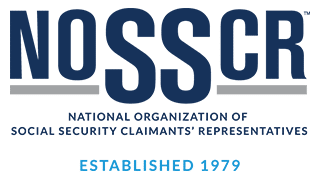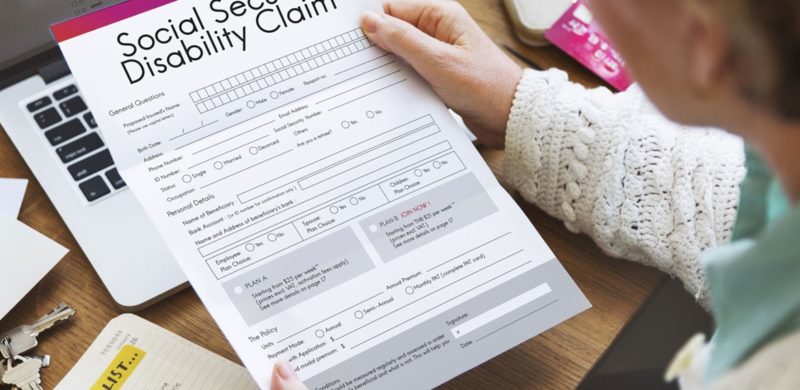Legal Support for Every Type of Disability Claim
Disability claims often fail not because someone is unqualified, but because the Social Security Administration requires strict, technical proof of limitations. In New York, each claim must show clearly how a condition prevents you from performing any gainful work. Our SSD attorneys in New York focus on these technical details to build claims that withstand SSA scrutiny.
We can help you handle any type of application and take your case through each stage of the process.
- SSDI Claims & Applications
- SSDI Denials
- Supplemental Security Income (SSI) Claims
- Disability Appeals & Hearings
Rather than submitting a standard application, our lawyers analyze every detail, from medical records to workplace history and functional limitations, to create a legally sound argument for approval. For families in New York, this means faster resolutions, stronger claims, and a higher likelihood of receiving the benefits needed to cover living expenses, healthcare costs, and ongoing care.
Your SSD Claim Handled By Results‑Driven Attorneys
Social Security Disability claims can be confusing, slow, and frustrating. Denials are common, even when you clearly cannot work due to illness or injury. At Hiller Comerford Injury & Disability Law, we help New York residents navigate this process with a focus on strategy, accuracy, and persistence. Our goal is to give your claim the attention and legal support it needs to succeed.
Crafting a Precise Medical Narrative
SSA decisions hinge on clear, documented proof of your limitations. We gather medical records, lab results, treatment histories, and detailed physician statements to build a compelling picture of how your condition affects daily work capacity.
Handling Complex Cases Across Multiple Benefits
Many SSD claims overlap with personal injury, workers’ compensation, or long‑term disability claims. Our team coordinates evidence and legal strategy across all related cases, making sure no opportunity for compensation is missed.
Strategic Representation for Appeals
If your claim is denied, we guide you through the SSD appeal process, whether at reconsideration, ALJ hearing, or federal court. We present evidence in a way that addresses the SSA’s exact criteria, increasing the likelihood of approval while reducing delays.
We Have a No-Fee Guarantee
You never pay us upfront. We only get paid if we win for you, so our success is directly tied to yours.
Free Case Evaluation
Speak with a lawyer at no cost. We’ll review your situation, explain your options, and help you understand the best path forward.
You’re More than a Case
We treat every client like family, taking the time to understand your story and guide you through every step with care and compassion.
Understanding Disability Benefit Programs in New York
The Social Security Administration offers multiple disability benefit programs, each designed for different financial and work backgrounds. Knowing which program applies to you is the first step toward a successful claim. A New York Social Security disability attorney can help you identify the correct programs and avoid applying under the wrong category, which can lead to unnecessary delays or denials.
-
Social Security Disability Insurance (SSDI)
SSDI provides monthly benefits to people who have worked and paid Social Security taxes but can no longer work due to a qualifying disability. Eligibility is based on your work history and medical condition, not financial need.
In addition to standard SSDI claims, benefits may also be available through:
- SSD when you are 50 or older: SSD is available to everyone who meets the eligibility requirements, regardless of age, but certain criteria for proving inability to work are relaxed for older applicants.
- SSD widows and widowers benefits: If your spouse was eligible for SSD and has died, you may be entitled to disability benefits on his or her record if you have become disabled within seven years of the date of death.
- SSD adult child benefits: Children of eligible SSD recipients, those who are deceased, or those who are retired, may be entitled to benefits if they became disabled before age 22.
- SSD benefits for dependents: If your SSD claim is successful, you may be entitled to an additional monthly amount to help you care for your minor children or certain other dependents.
-
Supplemental Security Income (SSI)
SSI is a needs-based program for disabled individuals and people over age 65 who have limited income and assets and little or no work history. SSI is often the only option for applicants who do not qualify for SSDI due to insufficient work credits.
SSI benefits are also available for children whose disabilities significantly limit daily functioning and meet financial eligibility requirements.
-
Long-Term Disability Insurance Claims
In addition to federal benefits, many New York residents have private or employer-sponsored long-term disability insurance. These claims follow different rules from Social Security and are often denied for technical reasons. Our attorneys assist with applications, appeals, and coordination between long-term disability claims and Social Security benefits.
Many people in New York miss out on valuable disability benefits simply because they do not realize they qualify or do not know which programs apply to their situation. Others are discouraged by confusing rules, strict deadlines, or past denials and never pursue the benefits they are entitled to receive.
Our firm helps identify every available option, explains how the programs work, and guides clients through each step of the application or appeals process.
How a Lawyer Improves Your Chances of SSD Approval
SSD claims are built on technical rules that many applicants never see coming. A lawyer’s job is to turn your medical history and work limitations into a clear legal argument that meets the Social Security Administration’s standards.
✓ Developing a Documented Medical Record: Attorneys help identify which treatment records matter most, request supporting statements from providers, and organize evidence so it shows ongoing limitations. This is especially important for conditions that a single test or diagnosis cannot easily measure.
✓ Translating Work History Into Legal Proof: SSD claim forms ask for detailed job descriptions and functional limits. A lawyer can explain how to show the physical or cognitive tasks you can no longer perform, which helps satisfy the SSA’s examination of past work and potential future work.
✓ Coordinating With SSA Requirements: There are deadlines, mandatory forms, and specific terms the SSA looks for when reviewing a disability claim. A lawyer manages correspondence, follows up with the SSA, and helps prevent gaps in information that could delay or derail your application.
✓ Strategic Representation During Appeals: If your initial application is denied, a lawyer prepares you for what to expect at a hearing, gathers new evidence, questions experts when needed, and presents arguments tailored to the judge’s review process. Many New York applicants receive approval at this stage when represented by counsel.
✓ Providing Clear Direction: A disability lawyer offers guidance on what evidence to collect, how to document daily limitations, and what mistakes to avoid. Instead of trying to navigate a government system alone, you have a knowledgeable advocate focused on improving the strength of your claim.
Working with an SSD attorney in New York gives your claim a more complete foundation. It allows you to move through the process with confidence, knowing that each step is being handled with care and attention to Social Security’s rules.
Do I Qualify for Social Security Disability Benefits?
To qualify for Social Security Disability benefits, you must meet both medical requirements and program-specific eligibility rules. The Social Security Administration does not approve claims based on a diagnosis alone. Instead, it evaluates how a medical condition limits your ability to work on a sustained basis.
Qualifying Medical Conditions and Functional Limitations
The SSA maintains a list of impairments that may qualify for disability benefits, often referred to as the “Blue Book.” However, having a listed condition is not required. Many approved claims involve conditions that are not listed but still prevent consistent employment.
The Social Security Administration has a strict formula for determining whether a disability is a qualifying condition or not. In order to receive SSDI benefits, your disability must make it so that:
- You cannot engage in substantial gainful activity
- You are unable to work in your previous role or adjust to another
- You will be unable to work for more than one year
SSDI does not cover partial or short-term disabilities due to the federal government’s belief that individuals and families can find the resources to handle short-term disabilities.
Any medical condition, physical, mental, or emotional, that prevents you from working full-time can be used as a basis for disability benefits, such as spinal cord injury disability benefits, chronic fatigue disability benefits, etc. However, the proof necessary to prove you are disabled differs depending on the nature of your medical conditions.
What matters most is not the label of the condition, but the documented limitations it causes. Medical records must show ongoing symptoms, treatment history, and how those symptoms interfere with basic work activities such as standing, sitting, concentrating, remembering tasks, or interacting with others.
SSDI Work Credit Requirements
To receive SSDI, you must have recently paid into the Social Security system prior to your disability. Paying into the system earns you credits toward SSDI. Earning credits requires a specific contribution amount, which varies each year.
In 2022, every $1,510 of income would earn you one credit. So after earning $6,040, you would have four credits, which is the maximum number of credits you can earn each year.
Once you earn 40 credits, you are eligible for SSDI monthly payments. However, 20 of those credits must have been earned in the past 10 years before your disability.
If you are younger and don’t have many years of work under your belt, you may qualify for one of the exceptions to the credit requirements. The federal government recognizes that workers get disabled when they are young and has made provisions. Our Social Security disability lawyers can help you determine your eligibility.
SSI Financial Eligibility Requirements
Supplemental Security Income is a needs-based program. Instead of work credits, eligibility depends on income, assets, and household resources. Strict limits apply, although certain income and property may be excluded.
Adults and children can qualify for SSI if they meet the same medical disability standard used for SSDI. For children, the SSA evaluates whether the condition causes severe functional limitations in daily activities.
Because SSI and SSDI rules differ, applying under the wrong program or failing to document eligibility correctly can lead to delays or denials.
Many applicants technically meet Social Security’s disability standards but are denied because their medical evidence does not clearly connect symptoms to work limitations. Our New York Social Security disability attorneys help identify qualifying conditions, gather targeted medical evidence, and present your limitations in the way the SSA evaluates claims.
What Happens If My Application is Denied?
Social Security disability denials are common, even for applicants with legitimate medical conditions. Many initial applications in New York receive a denial due to missing documentation, insufficient medical evidence, or errors in paperwork. A denial does not mean you are out of options.
You have the right to appeal, and each appeal level gives you another opportunity to present your medical records, work history, and supporting statements.
- Reconsideration: A new reviewer who had no part in the first decision evaluates your full application and any additional evidence you submit.
- Administrative Law Judge (ALJ) hearing: If reconsideration is denied, you can request a hearing before an ALJ. Many New York applicants are approved at this stage, especially when represented by an attorney.
- Appeals Council: If the ALJ denies your claim, the Appeals Council will review whether the judge followed Social Security rules. They may return the case for another hearing or issue their own decision.
- Federal Court: The final step is filing a lawsuit in federal district court. This allows a judge outside the Social Security system to review how your case was handled.
Deadlines matter. Most appeals must be filed within 60 days of receiving a denial notice, or you may lose the right to continue your claim. Our Social Security disability lawyers handle denials for clients across New York, including gathering medical evidence, preparing testimony, and representing you at hearings to protect your benefits.
Frequently Asked Questions
Our team of Social Security disability lawyers frequently gets questions covering a broad range of issues. Listed below are a few of the common inquiries they receive. For additional guidance, contact our law firm directly or consult our FAQ guide.
Can SSD lawyers help me increase my award?
Your Social Security benefit is a fixed amount that does not increase based on the severity of your injury. In other words, if your disability worsens, your benefit will remain the same.
With that being said, there are two instances when your award will change: cost-of-living adjustments and recalculations of benefits. Cost-of-living adjustments occur each year and are controlled by the SSA. The purpose of these readjustments is to make sure the benefit payment reflects the changes in the cost of living that have occurred in a year.
For individuals on SSDI, Social Security disability lawyers at our firm can help with a recalculation of benefits, which is another way to increase an award amount. The recalculation will only occur if an error was made or there were past wages not previously used in the first benefit calculation.
How long can I collect Social Security disability benefits?
Generally, you will continue collecting Social Security benefits as long as your qualifying condition continues. Keep in mind that all persons receiving disability payments must update the SSA with any improvement in their condition in a timely manner. Failure to do so could result in loss of benefits, restitution, and criminal charges.
If you are having issues with failure to report a change in your condition or are unsure about reporting requirements, feel free to reach out to our Social Security disability lawyers for a free consultation to discuss your case.
Can I work while receiving SSDI or SSI benefits?
You can work while receiving SSDI or SSI, and the federal government offers programs to help you return to employment.
- Working on SSDI: SSDI provides incentives such as continued benefits, health care, and support services. You start with a nine-month trial work period where you receive full benefits plus your earnings. After that, you have 36 months to keep benefits if your income stays below the substantial gainful level. If benefits stop because of earnings, you have five years to request reinstatement. Disability related work expenses, such as equipment or medications, may be deducted from your earnings when the SSA evaluates your income.
- Working on SSI: You can also work while receiving SSI, but payments stop once your income reaches the state limit. If benefits end due to income, they can be reinstated if your disability prevents further work. Disability related work expenses may be deducted from your income.
The Social Security disability attorneys at Hiller Comerford Injury & Disability Law help clients understand these rules, track important expenses, and protect their benefits.
What is considered a “disability” under Federal Social Security Law?
To qualify for SSD benefits, you must be completely unable to work. Unlike other programs that may cover partial disability, Social Security requires that you cannot perform your past job or any other gainful employment. Your disability must come from a serious medical condition that is expected to last at least one continuous year or result in death. It must also be medically determinable, meaning it is diagnosed using accepted medical techniques. You must provide medical evidence to support your claim.
Mental or psychiatric conditions can be more challenging to prove. The Social Security Administration looks for documented symptoms involving behavior, memory, or thinking, backed by medical records or test results.
The standards for proving disability are strict. A Social Security disability attorney can explain what evidence is needed and help you determine your eligibility.
How can I afford an SSD lawyer in New York?
At Hiller Comerford Injury & Disability Law, you do not pay anything upfront. Our SSD attorneys work on a contingency basis, meaning fees are only collected if your claim is approved. During your free consultation, we walk you through all costs and explain how payments are handled, so there are no surprises before you decide to move forward.
Can I apply for VA disability and SSD for the same condition?
Yes. If a condition is service-connected and also prevents you from working, you may pursue VA disability benefits and Social Security disability benefits at the same time.
We coordinate both claims to prevent conflicts, ensure consistency in medical evidence, and maximize benefits across both systems without jeopardizing eligibility.
















